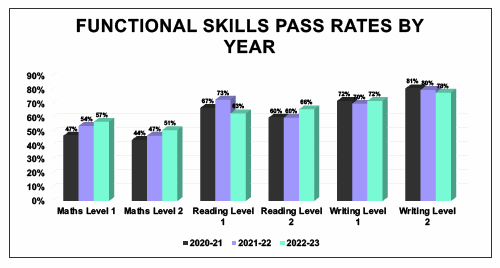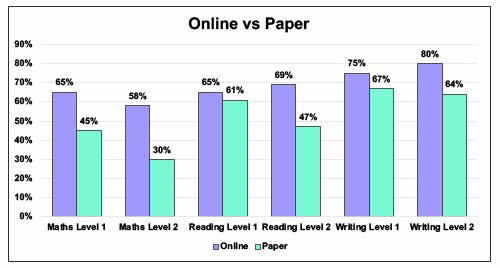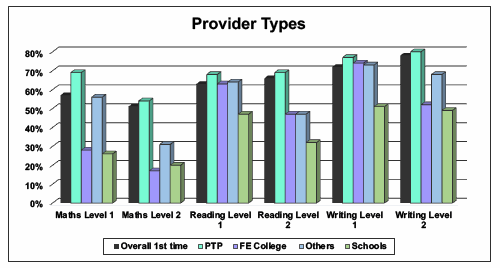
The chart above shows the first-time pass rates from the previous three uninterrupted sessions for Functional Skills. For maths you can see a steady improvement each year in the pass rates which is a reflection on the great effort made by all parties in the sector to bring improvement in this area.
Results in English Reading varies, and while we have seen a big improvement in Level 2, which is welcomed, we’ve also seen a drop at Level 1. This is something we’ll monitor and review, and we’re already looking at what the data is telling us and collecting feedback from a number of customers.
Results in English Writing is the most consistent of the three assessment areas.
It’s important to note that each type of assessment places different demands on learners. English Reading and Writing assessments present a lot of the information to learners and they then get assessed on how they utilise that information. However, for maths, there is a lot more knowledge recall needed and across a bigger curriculum area, which brings more challenges.




